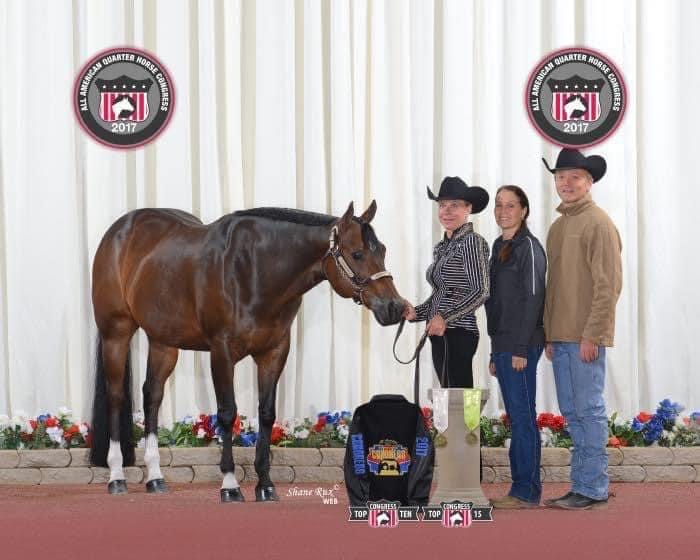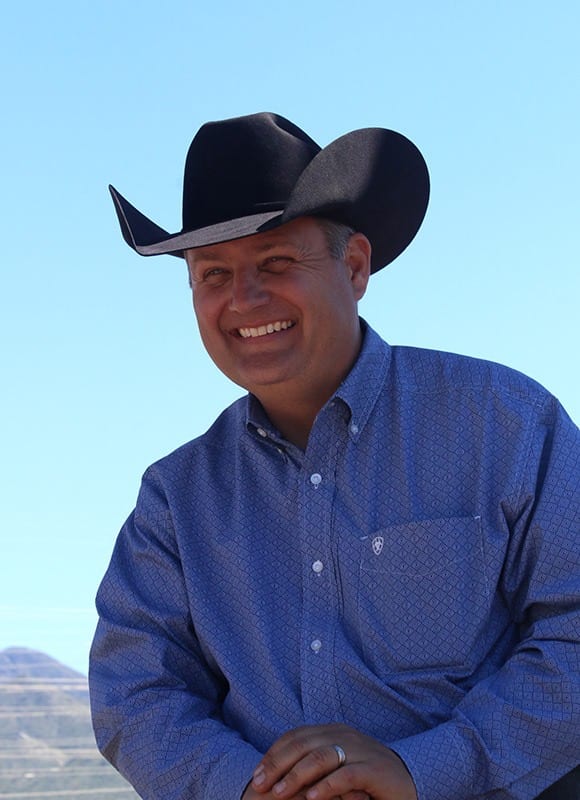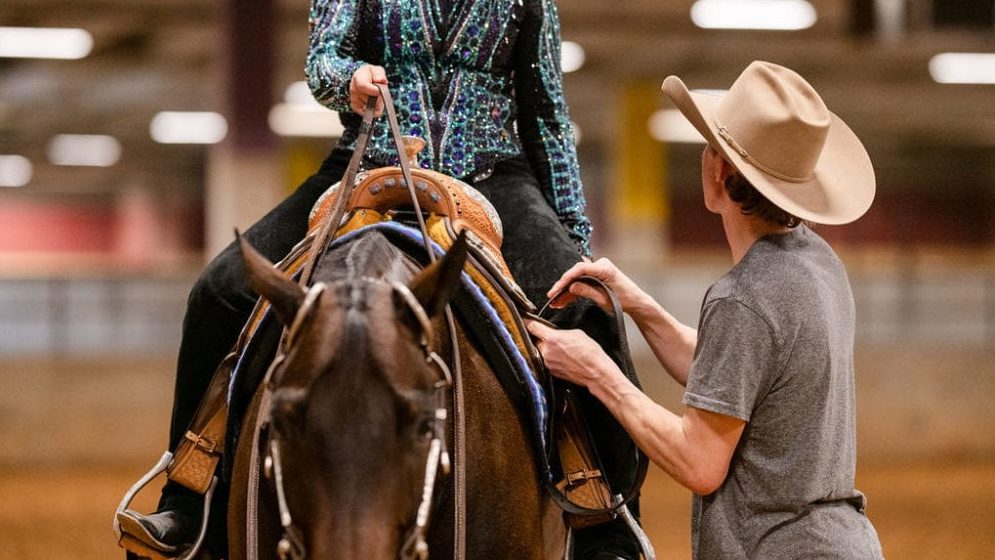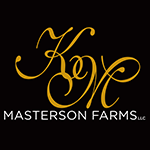For people passionate about showing, few things stir as much excitement as welcoming home a new horse. Whether you are stepping up to the next level, returning after a hiatus, or adding a second horse to your string, getting a new horse is fun, and sometimes stressful.
Developing a strong relationship with your horse can alleviate those stresses so you can enjoy your new partner, and pave a road for long-term success. Two top trainers share the importance of that process and why it needs to start early.
Starting Right
 According to Pierre Briere, a 38-year professional trainer and AQHA World Champion in western riding, enjoying a successful partnership with a horse starts with finding the best horse for you. Riders and horses must complement each other, a dynamic that can be detected as early as the first ride. “It is imperative to take the time to ride that horse before you purchase it. Get a good feel for it to make sure your personalities connect.”
According to Pierre Briere, a 38-year professional trainer and AQHA World Champion in western riding, enjoying a successful partnership with a horse starts with finding the best horse for you. Riders and horses must complement each other, a dynamic that can be detected as early as the first ride. “It is imperative to take the time to ride that horse before you purchase it. Get a good feel for it to make sure your personalities connect.”
Realistic expectations are also essential but often get lost in the excitement of the search. The biggest misconception? “That it’s going to be easy, and the horse will replicate exactly what it was when you bought it,” says Will Knabenshue, a 28-year professional trainer who runs a successful all-around program in Whitesboro, Texas.
Although buying a seasoned winner may seem like a competitive advantage, it is no guarantee of success. “Take an athlete on a football team, and they are very successful,” says Knabenshue. “Put them on a different team, and they may not be as successful because of the new surroundings.”
“The previous rider worked to build the relationship. You will need to do the same, and don’t expect immediate results,” Briere advises.
Briere and Knabenshue offer tips on looking for your next horse:
- Bring a trainer or industry professional along to help you find a horse suited to your riding style and ability and help you spot potential challenges.
- Know what you want. Look at horses that are right for your discipline.
- Be patient. Do not settle. Finding the right match may take months.
- Ride the horse to see if you feel a connection.
When You Get Home
A winning partnership not only takes time and effort, it can also be frustrating. When a young horse does not progress quickly, when a seasoned horse does not perform to previous career levels, or when personalities clash, these are points when setbacks occur and confidence dips.
Briere and Knabenshue both agree that it can take a year or more for horses and their human counterparts to sync and that patience and listening to the horse are key. Briere says, “If you are patient and take your time, your horse will tell you what he needs and what you need to change. It’s about you getting to know him so you can make the adjustments.”
Adjusting means retraining yourself. Habits that helped you get along with your last horse may not work with a different horse. Learning news habits will help you get acclimated to your new horse and learn what works for him.
Keeping your new horse in his routine is essential. Briere suggests maintaining a relationship with the previous owner and asking questions about the horse’s routines, preferences, and habits so that you can make his transition to his new life easier.
Learn your horse. Pay attention to his body language and learn his cues. Focus on making sure he is engaged and does not become bored.
Practice your warm-up routine at home and try to simulate a show environment when possible. Work on individual maneuvers, and perform them in a series. Practice full patterns so you can duplicate that at a show.
 Expect that things will be different at a show than at home. “We expect to get what we had at home, and then we get lost,” says Knabenshue. Even if things go wrong, he says, showing forces horses, and riders, to grow and improve due to stepping outside their comfort zone.
Expect that things will be different at a show than at home. “We expect to get what we had at home, and then we get lost,” says Knabenshue. Even if things go wrong, he says, showing forces horses, and riders, to grow and improve due to stepping outside their comfort zone.
Knabenshue recommends always having a plan for your rides; what exercises you will do and what you want to accomplish, and be flexible if plans go astray. Learn your horse and build confidence through practice and repetition. “I try to get my horses in a position where they can excel and be confident. If they are, then I’m going to be, too.”
“Having a relationship with a horse that turns into a successful relationship over the years in the show arena depends on getting to know each other,” says Briere. “When your horse knows your body language, when he responds with limited cues, when you know how your horse should feel, that is the point of connection, and that can take years.”
Investing the time to build a bond can be enjoyable, especially when you begin to see it pay off. The thrill of competition can be rewarding, but even more rewarding is knowing you have a partner you can count on for years to come, and that is an investment worth making.
About the Author – A lifelong rider and equine enthusiast, Diane Staton lives with her significant other, Barry Haynes, on his family farm in Harned, KY, where the family trains and shows Quarter Horses.









